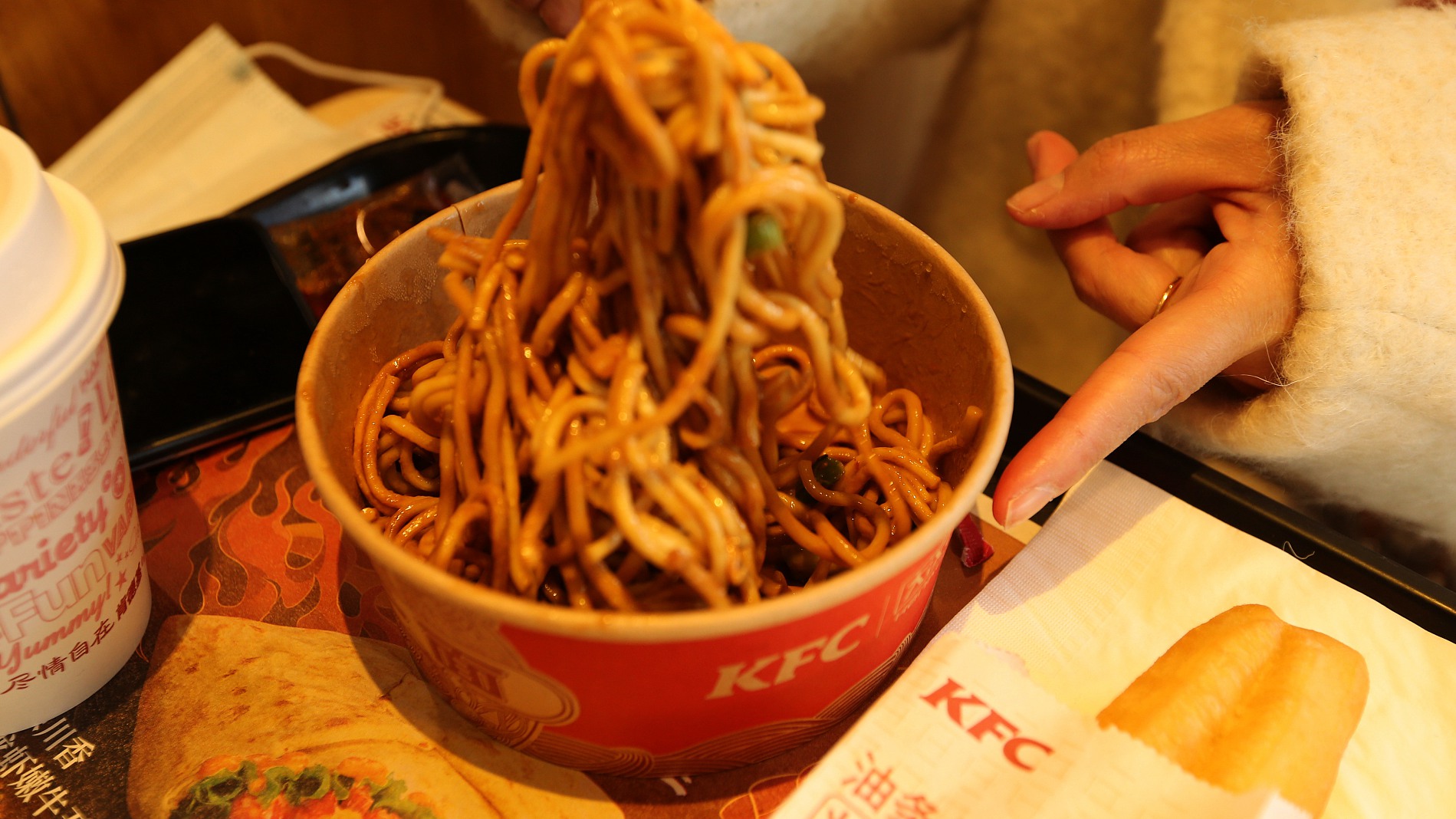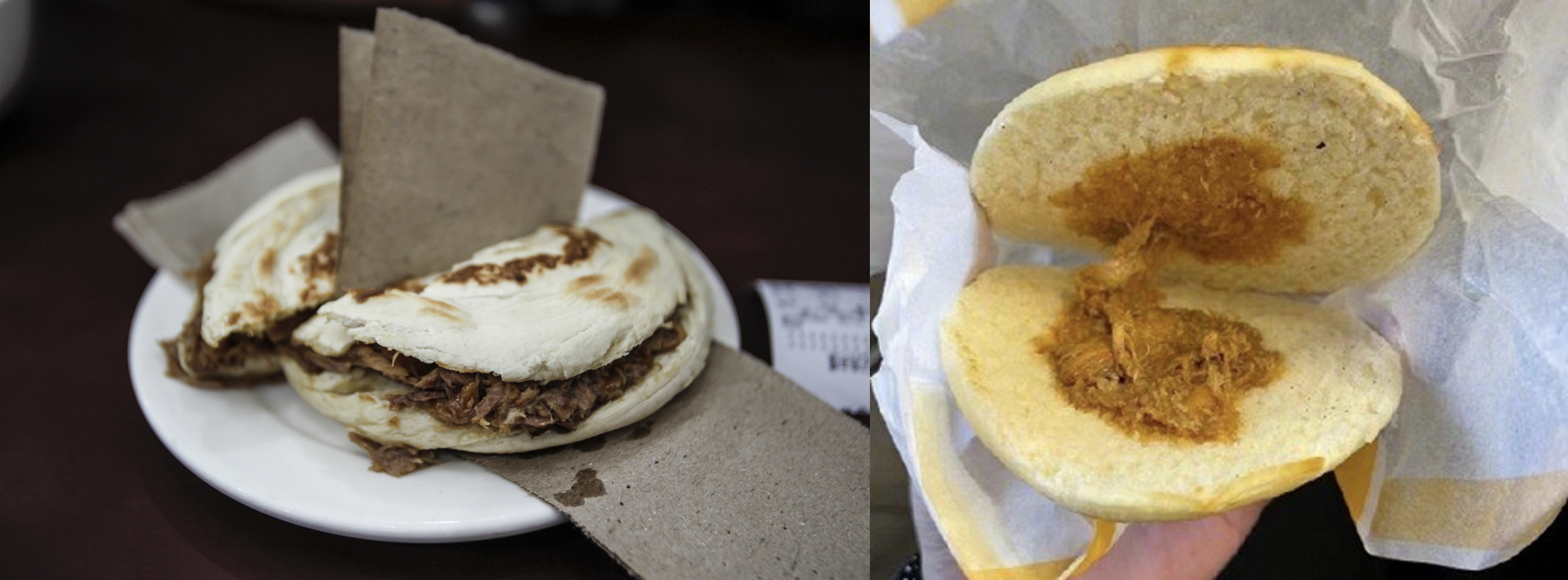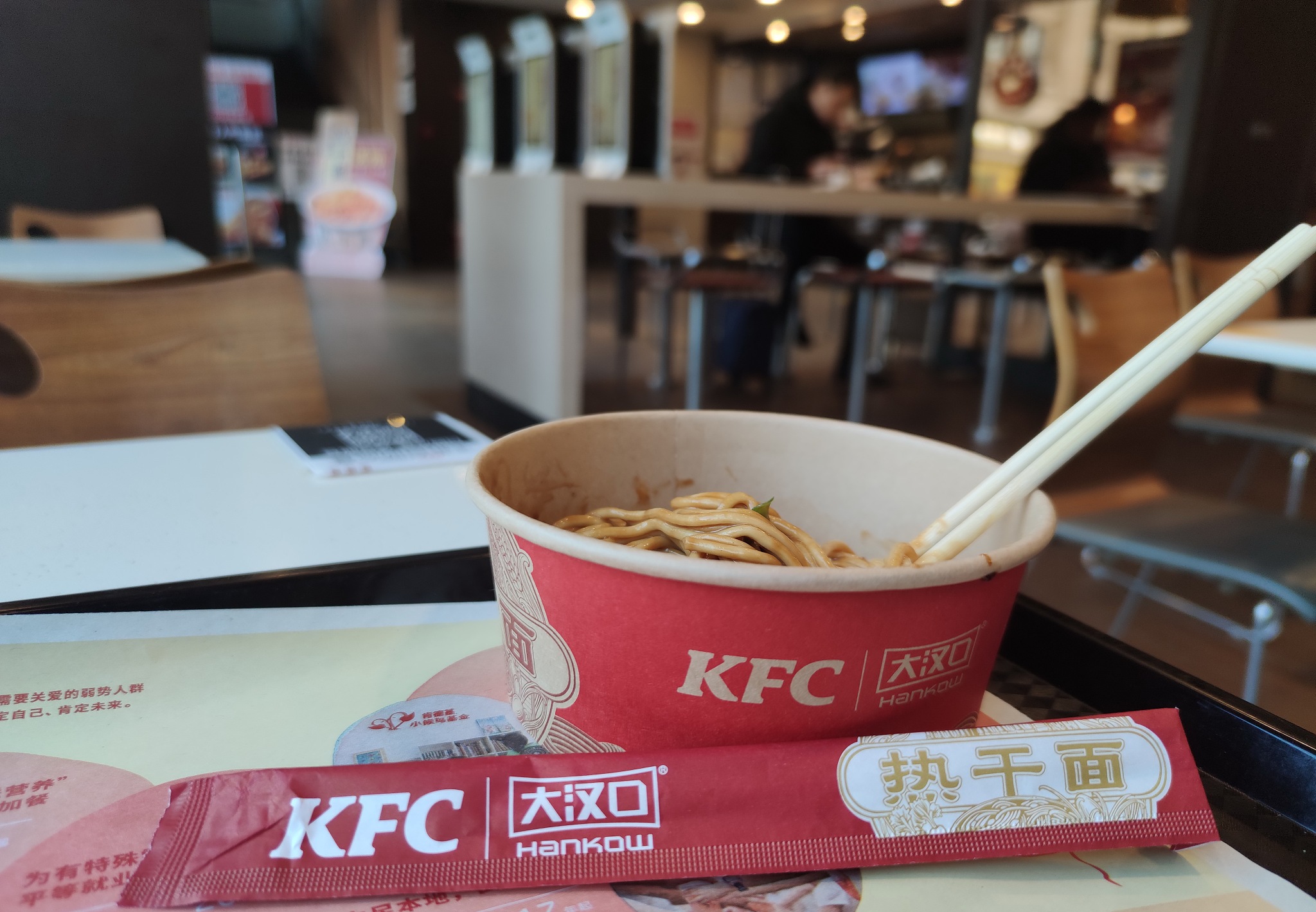
KFC launched hot-and-dry noodles, also known as reganmian, at more than 100 restaurants in Wuhan, Hubei Province, January 18, 2021. /CFP
KFC launched hot-and-dry noodles, also known as reganmian, at more than 100 restaurants in Wuhan, Hubei Province, January 18, 2021. /CFP
From Chinese burgers to ice cream doused in chili oil, U.S. fast-food giants are infusing their offerings with a Chinese flair. McDonald's and KFC have long localized their menus to appeal to the Chinese palate, but their latest takes on traditional dishes and ingredients seem to be causing quite a buzz, and not always the good kind.
Earlier this year, McDonald's China added roujiamo, a street-food staple from Shaanxi Province, to its menu. Known as "Chinese burger," it's meat sandwiched between two flat buns. The limited-edition special, which the company said was in celebration of the upcoming Lunar New Year, was met with frowns and confused looks.
Many said that the roujiamo on offer looked nothing like the advertisement, while others said that the sandwich is a snack and has no place on any breakfast menu. There was also a bit of confusion about how much meat was hiding between the bread – some complained the filling was less-than-generous, others had no issue with it. But the general consensus seemed that MacDonald's is more gifted at making classic burgers than their Chinese counterpart.
"It does not taste good," one customer who introduced herself by her last name Zhang told CGTN. The amount of meat didn't bother her, but she said she prefers her roujiamo from a food stall than a fast food chain.

A composite of a traditional roujiamo (L) and McDonald's version (R). /CFP, Sina Weibo
A composite of a traditional roujiamo (L) and McDonald's version (R). /CFP, Sina Weibo
Undeterred by the negative roujiamo reviews, the Golden Arches on Monday served another dose of controversy. It debuted a "spicy chili oil sundae," which combines a vanilla-flavored soft serve covered in chili oil.
The item is part of a new promotional activity whereby McDonald's offers once a month a new creation, first redeemable by members for free using a coupon and then available to the public for a limited period.
The sweet-and-spicy dessert was due to be sold in select McDonald's stores, including in Shanghai and Shenzhen, from January 26 to 31. However, the company said Tuesday it is suspending the offer "due to the COVID-19 pandemic" in a statement published on Weibo, a Chinese Twitter-like platform.
The menu addition was predictably divisive. Some were optimistic about the flavor and called it "innovative," others however noted that the combination of spice, oil, and ice cream spells bad news for their digestive system.

The McDonald's spicy chili oil sundae. /Sina Weibo
The McDonald's spicy chili oil sundae. /Sina Weibo
KFC is also taking the same path as McDonald's. The fast food chain, known for its fried chicken, introduced hot-and-dry noodles to the menus of 100 stores in the dish's birthplace, Wuhan in central China's Hubei Province. The noodles, called reganmian can be ordered alone or as a set, with soy milk, deep-fried dough (or youtiao ) and fried eggs.
Reganmian is a common go-to breakfast choice for locals in Wuhan, and KFC's version is the result of a partnership between its parent company Yum China and the Hubei Provincial Government to support locally-produced ingredients. The team-up draws on previous efforts to support local farmers and food producers who have been hit by COVID-19, which in China was first recorded in Wuhan, and the subsequent 76-lockdown in early 2020.
"Overall, the taste is good," one customer surnamed Bao told CGTN, adding "but a portion is still not enough for one person."

Hot-and-dry noodles are sold at a KFC store in Hankou Railway Station Store in Wuhan, Hubei Province, January 18, 2021. /CFP
Hot-and-dry noodles are sold at a KFC store in Hankou Railway Station Store in Wuhan, Hubei Province, January 18, 2021. /CFP
Analysts say that these new concoctions are a way for fast food chains to draw foot traffic following a tough year on the catering industry in 2020 because of the coronavirus pandemic, according to Chinese business outlet Sina Finance. With competition heating up in first- and second-tier cities, out-of-the-box offerings can also help foreign brands stand out in an increasingly crowded fast food space.

